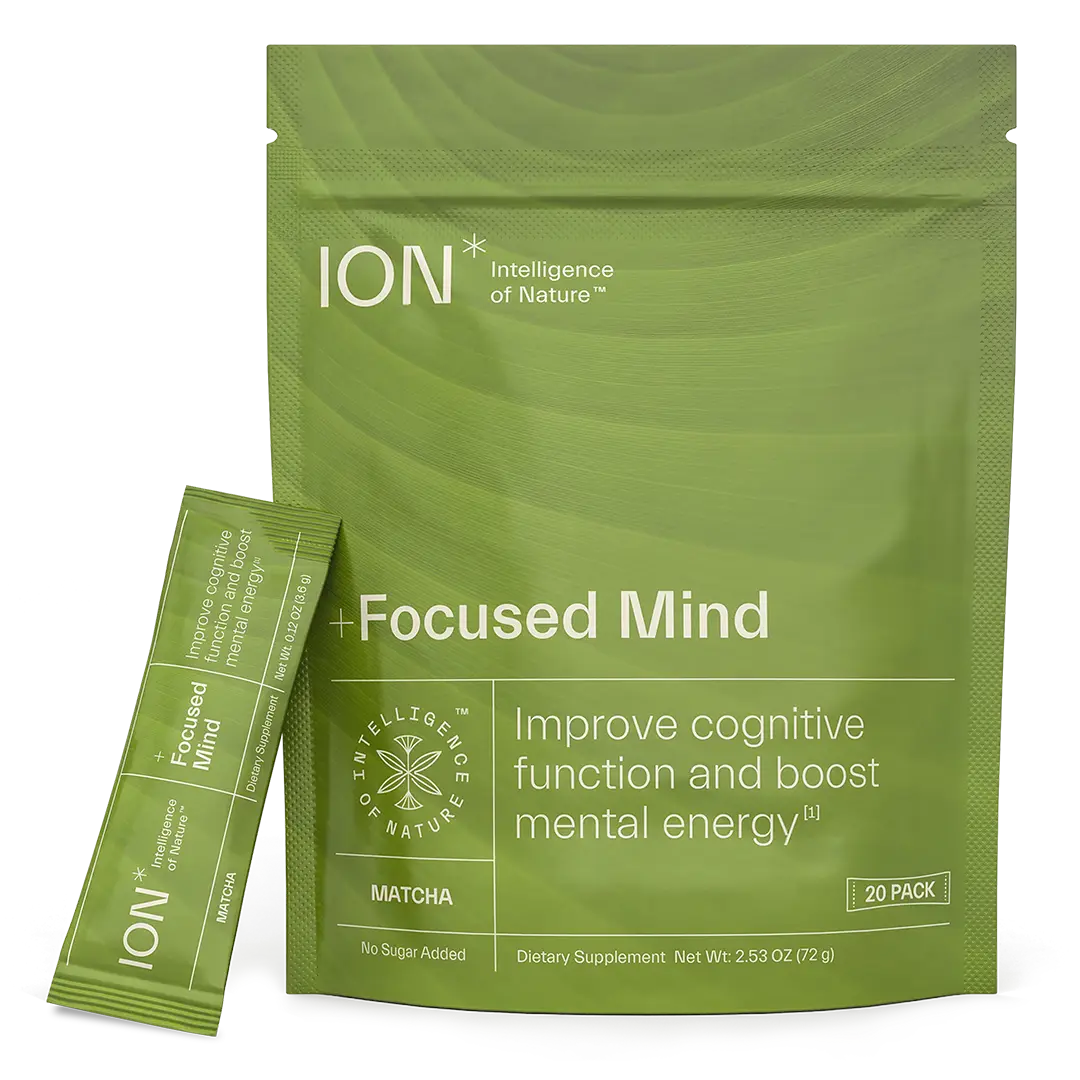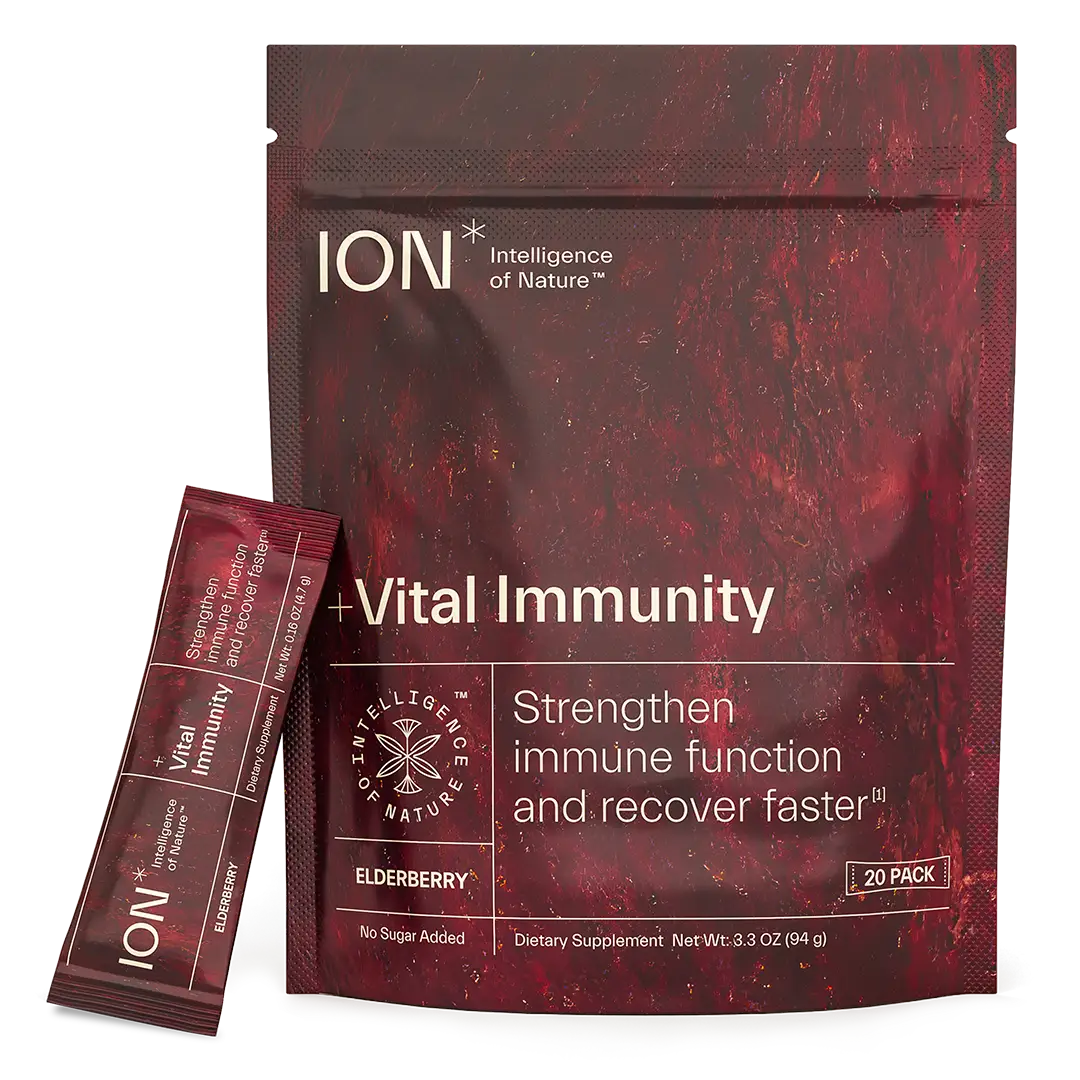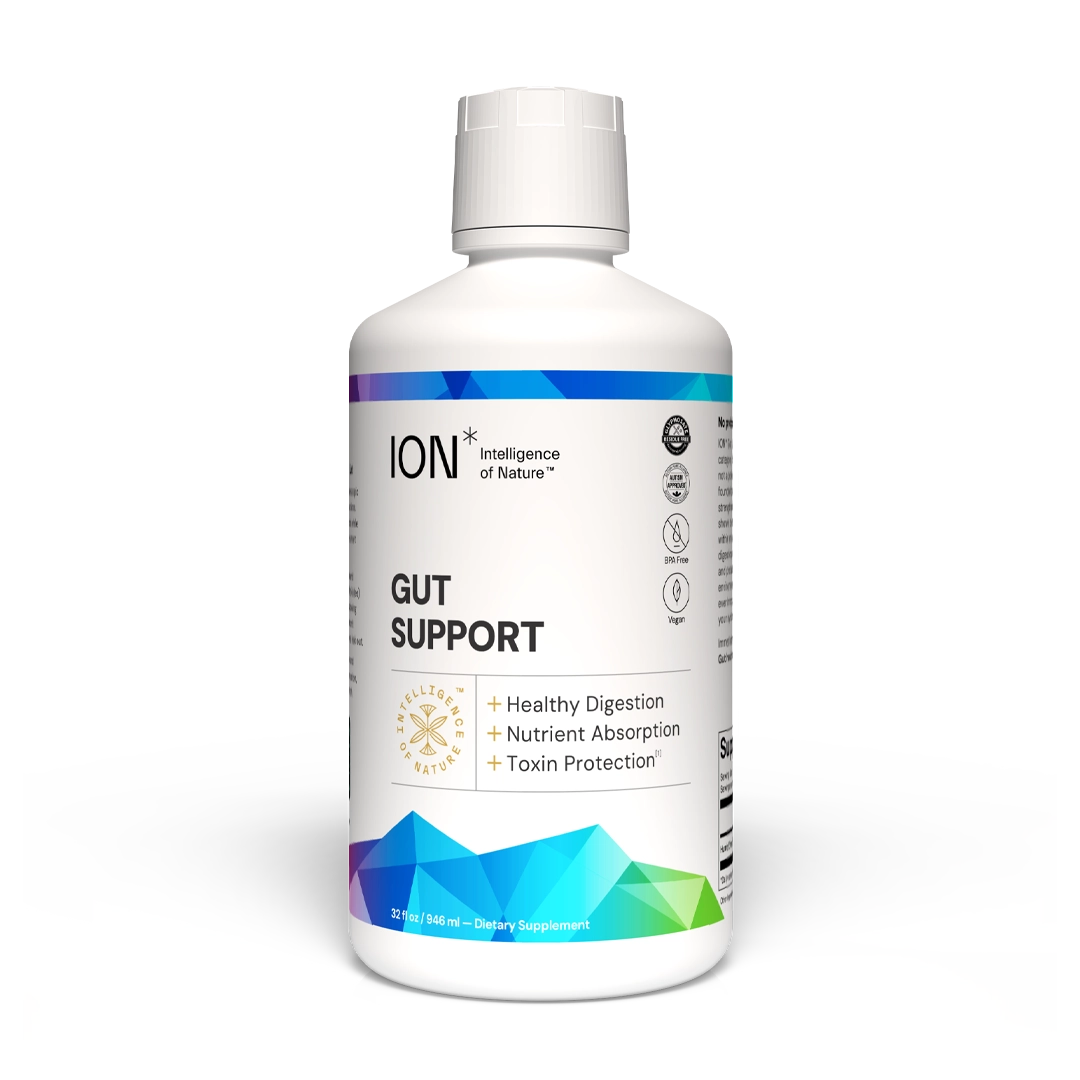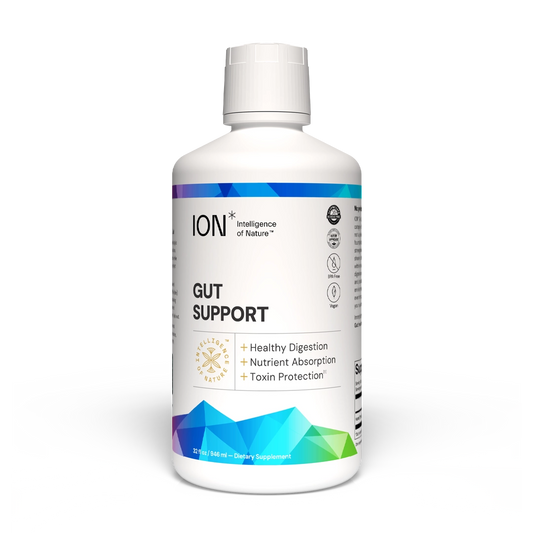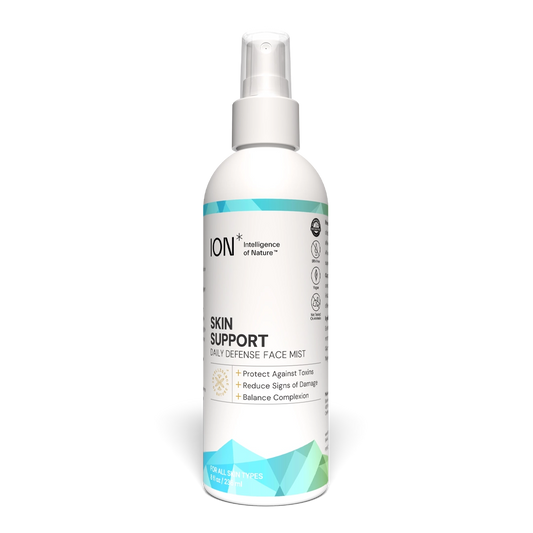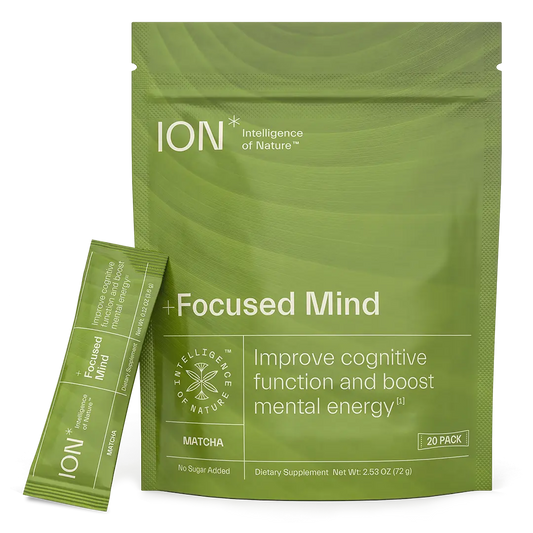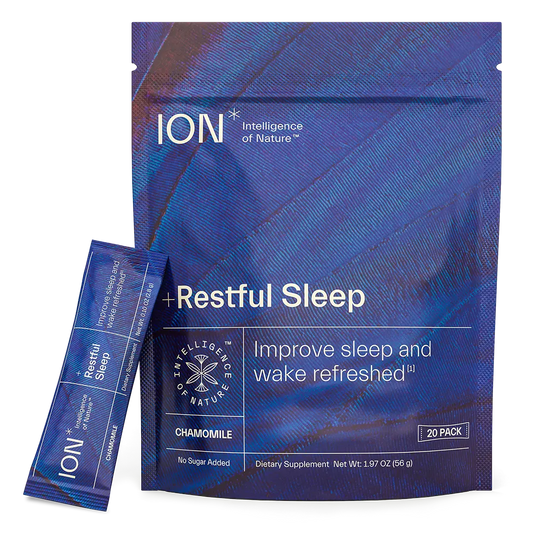
People bond over shared experiences. But ironically, some of the most universally shared human experiences are ones we don’t want to discuss. Especially not with friends or loved ones. Or anyone, really.
Yep, we’re talking about stomach problems.
Chances are, you’ve experienced them a time or two (or more!) in your life. While generally not considered polite conversation, the reality is many of us will be affected by stomach and digestion issues, whether that’s just time-to-time or even chronically.
Bloating, gas, diarrhea, upset stomach, heartburn, constipation, indigestion, et cetera. The list of stomach issues goes on and on (as does the list of stomach problems in dogs). It’s no wonder then, that about 4 in 10 people have at least one digestive symptom at any one time and 15 percent of people experience a severe form of gut sensitivity called irritable bowel syndrome (IBS).
But stomach issues don’t stop at the stomach.
Your gut is the gateway to so many other parts of your body, including your brain! Science is emerging, but what researchers call the “gut-brain” axis is responsible for the back and forth communication between the central and the enteric nervous system, meaning it links the emotional and cognitive centers of the brain with peripheral intestinal functions. Your gut is also responsible for creating many of the neurotransmitters that help control sleep and moods, like serotonin. So, you know. Pretty important things.
In all honesty, the importance of gut health really can’t be overstated. Your gut is majorly responsible (70%!) for your immune function and response. And if you think about it, it makes complete sense. Your gut is your body’s first line of defense from harmful foreign substances. Its job is to filter out the bad and keep in the good (in so many words). It does that on the cellular level via tight junctions in the gut that keep your intestinal lining operating at peak performance. But when your gut lining is continually assaulted with environmental toxins, those cellular junctions loosen and let bad substances pass right on through. Then? Hello, leaky gut and hello, stomach issues.
Additionally, everyone has what is called a “microbiome” inside their gut. It’s where all the microscopic bacteria–good and bad–come together to create, to use a large-scale example, a thriving rainforest-like ecosystem inside you. Upset that ecosystem, and everything gets affected.
To get to the bottom of the issues of what can be harming your gut health, you have to examine what’s at the top. That is, what external factors can ultimately be affecting your internal stomach and gut health? And more to the point, which ones can cause problems and issues and which ones can help improve those issues and positively impact stomach and gut health?
First and foremost, we have to talk about food.
Of course this is the first thing people attribute to their stomach issues, be it food poisoning or sensitivities or toxins. And with good reason, too! The food you consume can have the biggest impact on your digestive system.
And you can probably guess the kinds of foods that are typically a little hard on your stomach health: very spicy foods, coffee, alcohol, excess sugar. Avoiding these if you’re experiencing common issues like heartburn, bloating, and/or indigestion may be a good thing to give a shot. But of course, everybody’s body is different! That’s why a triple latte can make your coworker feel like a million dollars but a hint of milk can send you running for the restroom.
Keeping those unique differences from person to person in mind, we’re not in the business of telling anyone hard and fast rules for foods to always say “No!’ to. If you’re a coffee-every-morning and curry-every-night person and you’ve got no issues, more power to you. But, we can certainly share foods that have been shown to help improve stomach and gut health, and those we call “Yes!” foods.

Some of our favorite “Yes!” foods.
Leafy Greens
Yeah, your mom was right. Eating your greens is super important if you want to be healthy and strong. Spinach, kale and other leafy green goodies are phenomenal fiber sources and are packed with nutrients like folate, vitamin C, vitamin K and vitamin A. And if you needed another reason to get your greens on, research shows that they actually also contain a specific sugar that helps fuel the growth of good gut bacteria. Bon appetit.
Whole Grains
Ketosis who? Low carb diets have been trendy for quite some time, but if gut health is the goal, whole grains can be a good idea, according to science. Doctors say optimal colon function requires at least 25 grams of fiber daily.
In addition to more fiber than their refined counterparts, whole grains provide added nutrients, like omega-3 fatty acids. When the bacteria in your gut ferment fiber, they produce short-chain fatty acids, which encourage optimal function for the cells lining your colon. Always shoot for organic when incorporating gluten into your diet and if you’re sensitive to gluten, never fear, we’ve got more options for you below.
Lean Protein
IBS sufferers who love an extra fatty short rib, we’ve got some bad news. Lean protein is the name of the healthy, happy stomach game, especially for you. That’s because foods that are rich in fat, including fried foods, can trigger contractions of the colon. (And not to pile on, but experts also say that red meat promotes the bacteria that produce chemicals associated with an increased risk of clogged arteries.)
Low-Fructose Fruits
Say that 5 times fast. All fruits are sweet to varying degrees; if you’re looking for the best bet to make your stomach happy, opt for the less sweet. The high fructose content in sweeter fruits like apples, pears and mango can cause gas and bloating.
But that doesn’t mean all fruit is forbidden. In fact, lower fructose options like berries and citrus fruits–such as oranges and grapefruit–are easier to tolerate and less likely to cause gas. And if you want to go for the one-two punch of low fructose and high fiber? Grab a banana. They also contain inulin, a prebiotic that stimulates the growth of good bacteria in the gut.
Avocado
They don’t call avocado a superfood for nothing. It’s densely packed with fiber and essential nutrients, like potassium, which helps promote healthy digestive function.
And while food can (and usually does!) play a big role in stomach issues, there are also some unexpected problem-makers. Like certain medicines.
Not many people know this, but some stomach issues stem from widely-used medications. In a cruel twist of medical irony, these very common treatments may be aggravating your gut and creating problems. And it’s not just one type of medicine, unfortunately. Non-steroidal anti-inflammatory drugs (NSAIDs) like aspirin and similar treatments for arthritis can aggravate stomach ulcers and indigestion. Some people experience constipation from the use of tranquilizers, iron tablets and cough medicines. And on the opposite end of the problem, antibiotics and blood pressure medicine can cause diarrhea.
Another trigger for stomach upset? Stress.
Knowing now how connected the brain and stomach are, it makes sense that something bothering the brain may manifest in the gut, like stress, for example. Research has shown us time and time again that stress can cause all sorts of issues for the body, especially if the person is experiencing long-term chronic stress. Prolonged stress can mess with your gut health, thereby lowering your immune function. And then you’re more stressed because you’re getting (and staying) sick more often. A terrible cycle.
The big takeaway here?
If you’re trying to help ease any stomach problems, don’t overlook the causes of stress in your life and prioritize finding ways to destress and make them regular habits! Thankfully, to do so isn’t a difficult task. Simply going for a walk, doing gentle yoga, taking a few minutes to meditate or playing with a pet can all help lower your overall stress levels. Whether playing fetch with your dog or Downward Facing Dog, it’s certainly worth investing your time to de-stress.
But investing in your health doesn’t have to stop at a daily stroll and eating more greens. We know that gut health is foundational to overall health–including (but definitely not limited to) stomach health. Because the gut is responsible for so many of the body’s critical functions, it makes sense that taking care of that innate system would, by extension, support the rest. So if you’re looking for a good strategy to improve stomach issues, it’s a good idea to specifically support your gut health.
That’s where daily ION* Gut Support comes in.
Unlike probiotics and other supplements available today, ION* Gut Support is a wellness solution that works with the natural systems your body already has in place to bolster gut health directly. ION* Gut Support works by functioning on the cellular level of your intestinal lining, helping to strengthen the tight junctions in your gut.
Remember, the things that are responsible for inviting good in and kicking bad out? The first line of defense against harmful substances? Yes. Supporting those very important cellular junctions is what ION* was created to do. And it does! ION* Gut Support gets to work strengthening tight junctions even as they’re exposed to substances that are known to harm them, like glyphosate.
So, if you’re dealing with one (or more) of the multitudes of stomach issues affecting so many of us and looking for solutions, try an all-natural wellness solution that is designed to help your stomach by supporting your gut health at the most foundational level–and see how you feel.
Try ION* Gut Support today.
